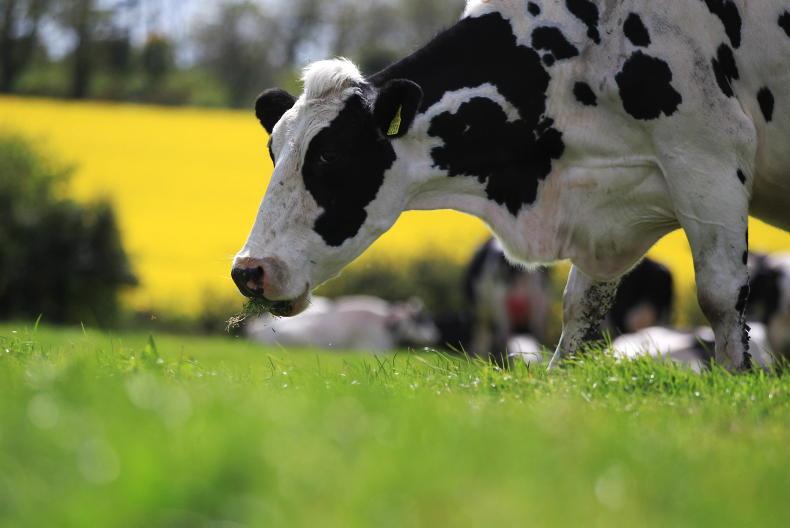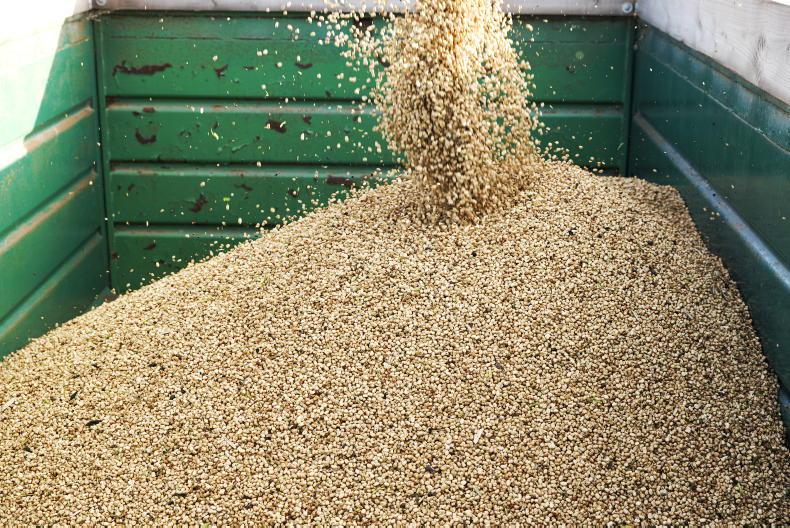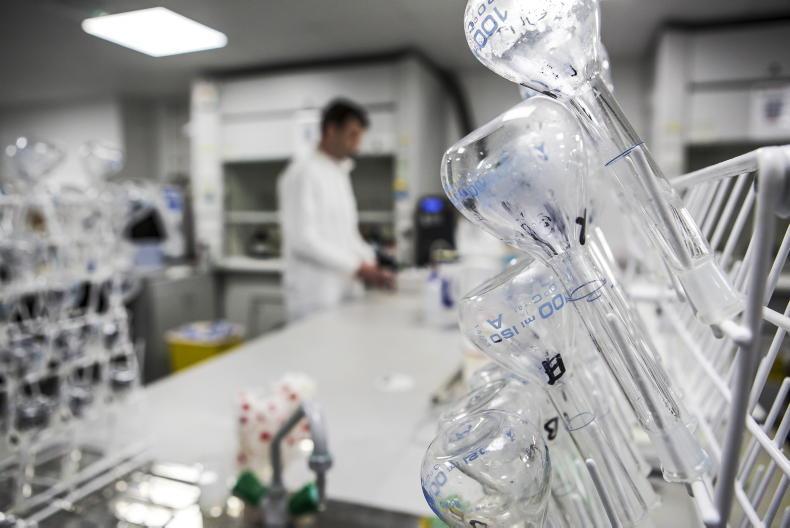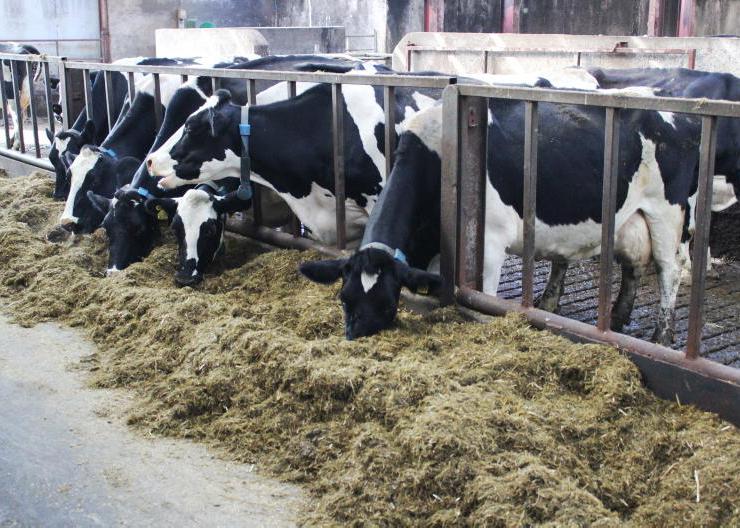A survey of 283 Irish Farmers Journal last week revealed that 79% of those surveyed would not take part in any proposed cow cull scheme, while 21% would be interested in taking up the scheme.
The same farmers were asked to give their personal opinion on the proposed cow reduction plan.
They responded with gusto, telling this newspaper in some detail why there were in favour or opposed to the proposed scheme.
Here we publish a flavour of their many opinions.
“It must be voluntary and control future expansion rather than penalise recent progression. However, no matter how misguided the reduction in cow numbers in Ireland is in relation to climate change, if it has to happen, adequate compensation and the correct tax treatment of the payment will attract the attention of plenty of farmers, provided the conditions are not onerous. There are many people happy to look at leaving the industry for any number of reasons.”“It would help farms without an heir to get out.”“It will be good for some farmers, as it will encourage them to get rid of poorly performing cows from herds that are not earning any profit on the farm. But well-managed and top herds will be difficult to remove cows from.”“I would understand completely why an existing farmer who has been supplying milk for the last 30 to 40 years would participate in this scheme. He or she gets a break, and the Government gets some climate kudos. Win-win. I think this scheme would be quietly welcomed by many.”“Farmers are making changes in how they farm with the environment in mind, and this is very necessary. However, the impact of their efforts needs to be given time. This scheme should not be rushed into. How would these culled cows affect the beef markets? “If 200,000 cows are culled, will the banding of farmers’ herds be removed? Farmers and processors have invested a lot of money over the years, inside and outside the farm gate. If processors are not compensated, they will pass the cost back to the farmer, but the farmers have no one to pass it back to.”
“We’re the most efficient producer of dairy products in the world. Just because we’re not an industrialised country means farming has a higher percentage of our total GHG emissions. It shouldn’t make Irish farmers sacrificial lambs at the expense of other countries with much less efficient farming practices but are a lower percentage of their countries’ overall GHG figure. It’s disgraceful what the Government is trying to do.”“Bring it on, no ifs, whys, or buts. It’s a voluntary scheme, nobody has anything to fear from it.”“I believe that within three to five years, the Government will be incentivising the same farmers to get back into production. They encouraged farmers to milk more cows with the ending of quotas, and within three to five [years], these farmers were being labelled as dirty dairy farmers for damaging the environment, even though they have invested heavily in modern facilities, equipment, and technology, and are the most profitable farmers in the country.”“I am very much in favour of a scheme that will give an option to farmers who want to exit milk for many reasons, maybe due to health or lack of a successor, etc, and are unable to because their farms would not make a living in any other enterprise, only dairy. “This would give an option to farm extensively and more environmentally friendly with drystock and still have a viable income. It’s rarely discussed how many older dairy farmers are trapped into continuing to work harder than they should, simply because they are at a stage in life where a change of career really isn’t an option.”
“The cow cull scheme should be totally voluntary. I think it makes very good sense for farmers who wish to downsize or cease completely, but I don’t think that the small-scale dairy farmers should have to pay for the running of this scheme, as most of them are only barely surviving after all their bills are paid.”“I think anyone who has land leased and qualifies for the cull scheme should be allowed to continue their land leasing. I have four farms leased, and if I give up those leases, they will be leased by dairy farmers again who will expand their numbers, so there will be no reduction of emissions in this area. The only stipulation should be no milk production on the farm for the years the scheme is in place
“Farmers that exit milk through a cow reduction scheme should be able to lease their lands, if they wish, for the rearing of young stock by another dairy farmer or for silage production.
“The only stipulation should be no milk production on the farm for the years the scheme is in place. Otherwise, they are just being forced into beef production or growing crops.”
“I don’t think a €3,000 once-off payment to most dairy farmers would be acceptable unless they were considering getting out anyway. The scheme is definitely worth looking at, but the long-term effect could be bad for the industry as a whole. We are an aging population of dairy farmers, and we need new blood in the form of young trained people.” The Government is not giving new technologies for methane reduction a chance
“As a farmer with no successor and worn joints, a properly funded exit scheme would be a solution for me. It all depends on the fine print. It will never happen. It will suit a lot of people that have no successors, a windfall to get out, which they were planning anyway.”“The Government is not giving new technologies for methane reduction a chance; instead, they are looking for a quick fix that may cause even greater problems in the future.”
'I think the implications of forcing a rural economy to shrink a stable herd will take jobs and family security out of rural Ireland,' one farmer said.
“Total madness. A cull of 200,000 cows won’t make any difference to the world’s climate, as we all live on the same planet anyway. We are the laughing stock of Europe.”“We know that cattle are a major cause of carbon emissions and that something has to be done for the sake of the climate. It’s only right that we are compensated for it, but it’s going to happen sooner or later anyway. It’s good to get old farmers out of farming and let the new generation in.” The implications of forcing a rural economy to shrink a stable herd will take jobs and family security out of rural Ireland
“It’s very small-minded by the powers that be. It’s not going to be good for rural Ireland. I think the implications of forcing a rural economy to shrink a stable herd will take jobs and family security out of rural Ireland. It also causes further polarisation between societal groups and the demonisation of farmers who are following scientific advice and improving efficiencies at a steady rate.” “As someone involved in the Mulder quota case in the 1980s, I’d be extremely concerned about entering this scheme, both myself and any farmer considering it. Despite choosing the option of not producing milk for five years (1980 to 1985) and signing a contract stating that we would be allowed to return to milking after the five years, no provision was made under quota rules for our return. It took five years of going all the way to the highest European court before we were granted a quota. And no provision was provided in that new quota for the average increase in milk production from 1980 to 1983." “Will there be a cast-iron guarantee of resumption of production at the end? Will there be compensation for the increased costs per litre of processing and collection? Compensation for the loss of local facilities like machinery dealers, marts, workers for the duration of this scheme, and provision made for replacements when the scheme ends? This is a bad idea and will have no positive outcomes for farmers, their families, and the wider agricultural community.”“They are blaming everything on the farmers. Crazy. I think it’s absolutely ridiculous, and it will have no impact on global emissions whatsoever. If they were as quick to incentivise methane production from biogas or provide proper feed-in tariffs for on-farm solar generation, it would have a greater impact on our overall footprint.”“Eight years ago, we threw off the shackles of quotas, and now they want us gone, parlours, sheds, robots, the lot. Dairy products are increasingly needed to feed the world. If there’s a cull then what happens when food gets short? Reverse the plan again?”“I believe people’s attitudes to work and lifestyle have changed since the pandemic. Farmers with handy-sized herds who do most of the work themselves want a chance to maybe try something different." “It’s an overreaction to pressure from the environment lobby without proper consideration of the unintended consequences. The dismantling of the most successful recession-proof indigenous industry on the island.”“I don’t agree with a once-off payment. Won’t the revenue take half? I think a yearly payment would be the correct way. Farmers interested in partaking in this scheme should seek compensation of multiples of what is offered. Let’s see how important the green agenda is worth to them.”
What are your thoughts on the proposed dairy cow cull scheme? Let us know by filling out the form at www.ifj.ie/dairycull .
A survey of 283 Irish Farmers Journal last week revealed that 79% of those surveyed would not take part in any proposed cow cull scheme, while 21% would be interested in taking up the scheme.
The same farmers were asked to give their personal opinion on the proposed cow reduction plan.
They responded with gusto, telling this newspaper in some detail why there were in favour or opposed to the proposed scheme.
Here we publish a flavour of their many opinions.
“It must be voluntary and control future expansion rather than penalise recent progression. However, no matter how misguided the reduction in cow numbers in Ireland is in relation to climate change, if it has to happen, adequate compensation and the correct tax treatment of the payment will attract the attention of plenty of farmers, provided the conditions are not onerous. There are many people happy to look at leaving the industry for any number of reasons.”“It would help farms without an heir to get out.”“It will be good for some farmers, as it will encourage them to get rid of poorly performing cows from herds that are not earning any profit on the farm. But well-managed and top herds will be difficult to remove cows from.”“I would understand completely why an existing farmer who has been supplying milk for the last 30 to 40 years would participate in this scheme. He or she gets a break, and the Government gets some climate kudos. Win-win. I think this scheme would be quietly welcomed by many.”“Farmers are making changes in how they farm with the environment in mind, and this is very necessary. However, the impact of their efforts needs to be given time. This scheme should not be rushed into. How would these culled cows affect the beef markets? “If 200,000 cows are culled, will the banding of farmers’ herds be removed? Farmers and processors have invested a lot of money over the years, inside and outside the farm gate. If processors are not compensated, they will pass the cost back to the farmer, but the farmers have no one to pass it back to.”
“We’re the most efficient producer of dairy products in the world. Just because we’re not an industrialised country means farming has a higher percentage of our total GHG emissions. It shouldn’t make Irish farmers sacrificial lambs at the expense of other countries with much less efficient farming practices but are a lower percentage of their countries’ overall GHG figure. It’s disgraceful what the Government is trying to do.”“Bring it on, no ifs, whys, or buts. It’s a voluntary scheme, nobody has anything to fear from it.”“I believe that within three to five years, the Government will be incentivising the same farmers to get back into production. They encouraged farmers to milk more cows with the ending of quotas, and within three to five [years], these farmers were being labelled as dirty dairy farmers for damaging the environment, even though they have invested heavily in modern facilities, equipment, and technology, and are the most profitable farmers in the country.”“I am very much in favour of a scheme that will give an option to farmers who want to exit milk for many reasons, maybe due to health or lack of a successor, etc, and are unable to because their farms would not make a living in any other enterprise, only dairy. “This would give an option to farm extensively and more environmentally friendly with drystock and still have a viable income. It’s rarely discussed how many older dairy farmers are trapped into continuing to work harder than they should, simply because they are at a stage in life where a change of career really isn’t an option.”
“The cow cull scheme should be totally voluntary. I think it makes very good sense for farmers who wish to downsize or cease completely, but I don’t think that the small-scale dairy farmers should have to pay for the running of this scheme, as most of them are only barely surviving after all their bills are paid.”“I think anyone who has land leased and qualifies for the cull scheme should be allowed to continue their land leasing. I have four farms leased, and if I give up those leases, they will be leased by dairy farmers again who will expand their numbers, so there will be no reduction of emissions in this area. The only stipulation should be no milk production on the farm for the years the scheme is in place
“Farmers that exit milk through a cow reduction scheme should be able to lease their lands, if they wish, for the rearing of young stock by another dairy farmer or for silage production.
“The only stipulation should be no milk production on the farm for the years the scheme is in place. Otherwise, they are just being forced into beef production or growing crops.”
“I don’t think a €3,000 once-off payment to most dairy farmers would be acceptable unless they were considering getting out anyway. The scheme is definitely worth looking at, but the long-term effect could be bad for the industry as a whole. We are an aging population of dairy farmers, and we need new blood in the form of young trained people.” The Government is not giving new technologies for methane reduction a chance
“As a farmer with no successor and worn joints, a properly funded exit scheme would be a solution for me. It all depends on the fine print. It will never happen. It will suit a lot of people that have no successors, a windfall to get out, which they were planning anyway.”“The Government is not giving new technologies for methane reduction a chance; instead, they are looking for a quick fix that may cause even greater problems in the future.”
'I think the implications of forcing a rural economy to shrink a stable herd will take jobs and family security out of rural Ireland,' one farmer said.
“Total madness. A cull of 200,000 cows won’t make any difference to the world’s climate, as we all live on the same planet anyway. We are the laughing stock of Europe.”“We know that cattle are a major cause of carbon emissions and that something has to be done for the sake of the climate. It’s only right that we are compensated for it, but it’s going to happen sooner or later anyway. It’s good to get old farmers out of farming and let the new generation in.” The implications of forcing a rural economy to shrink a stable herd will take jobs and family security out of rural Ireland
“It’s very small-minded by the powers that be. It’s not going to be good for rural Ireland. I think the implications of forcing a rural economy to shrink a stable herd will take jobs and family security out of rural Ireland. It also causes further polarisation between societal groups and the demonisation of farmers who are following scientific advice and improving efficiencies at a steady rate.” “As someone involved in the Mulder quota case in the 1980s, I’d be extremely concerned about entering this scheme, both myself and any farmer considering it. Despite choosing the option of not producing milk for five years (1980 to 1985) and signing a contract stating that we would be allowed to return to milking after the five years, no provision was made under quota rules for our return. It took five years of going all the way to the highest European court before we were granted a quota. And no provision was provided in that new quota for the average increase in milk production from 1980 to 1983." “Will there be a cast-iron guarantee of resumption of production at the end? Will there be compensation for the increased costs per litre of processing and collection? Compensation for the loss of local facilities like machinery dealers, marts, workers for the duration of this scheme, and provision made for replacements when the scheme ends? This is a bad idea and will have no positive outcomes for farmers, their families, and the wider agricultural community.”“They are blaming everything on the farmers. Crazy. I think it’s absolutely ridiculous, and it will have no impact on global emissions whatsoever. If they were as quick to incentivise methane production from biogas or provide proper feed-in tariffs for on-farm solar generation, it would have a greater impact on our overall footprint.”“Eight years ago, we threw off the shackles of quotas, and now they want us gone, parlours, sheds, robots, the lot. Dairy products are increasingly needed to feed the world. If there’s a cull then what happens when food gets short? Reverse the plan again?”“I believe people’s attitudes to work and lifestyle have changed since the pandemic. Farmers with handy-sized herds who do most of the work themselves want a chance to maybe try something different." “It’s an overreaction to pressure from the environment lobby without proper consideration of the unintended consequences. The dismantling of the most successful recession-proof indigenous industry on the island.”“I don’t agree with a once-off payment. Won’t the revenue take half? I think a yearly payment would be the correct way. Farmers interested in partaking in this scheme should seek compensation of multiples of what is offered. Let’s see how important the green agenda is worth to them.”
What are your thoughts on the proposed dairy cow cull scheme? Let us know by filling out the form at www.ifj.ie/dairycull .












SHARING OPTIONS